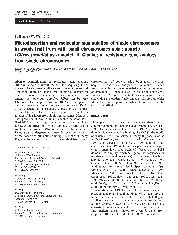摘要
Amplification of resistance gene analogs (RGAs) is both a useful method for acquiring DNA markers closely linked to disease resistance (R) genes and a potential approach for the rapid cloning of R genes in plants. However, the screening of target sequences from among the numerous amplified RGAs can be very laborious. The amplification of RGAs from specific chromosomes could greatly reduce the number of RGAs to be screened and, consequently, speed up the identification of target RGAs. We have developed two methods for amplifying RGAs from single chromosomes. Method 1 uses products of Sau3A linker adaptor-mediated PCR (LAM-PCR) from a single chromosome as the templates for RGA amplification, while Method 2 directly uses a single chromosomal DNA molecule as the template. Using a pair of degenerate primers designed on the basis of the conserved nucleotide-binding-site motifs in many R genes, RGAs were successfully amplified from single chromosomes of pomelo using both these methods. Sequencing and cluster analysis of RGA clones obtained from single chromosomes revealed the number, type and organization of R-gene clusters on the chromosomes. We suggest that Method 1 is suitable for analyzing chromosomes that are unidentifiable under a microscope, while Method 2 is more appropriate when chromosomes can be clearly identified.
- 出版日期2004-5
- 单位福建师范大学
